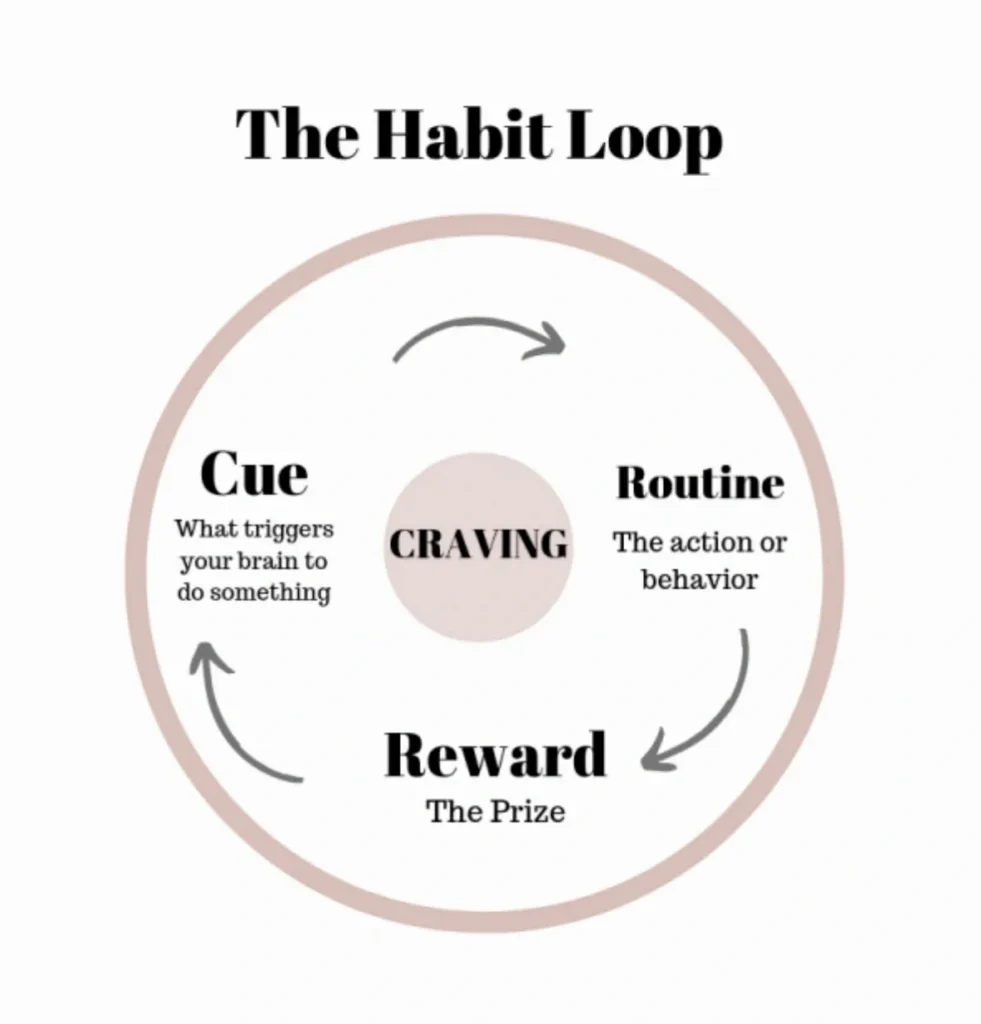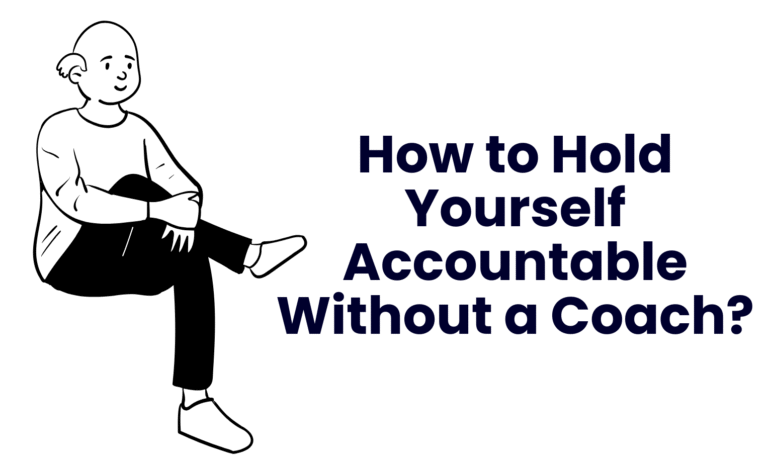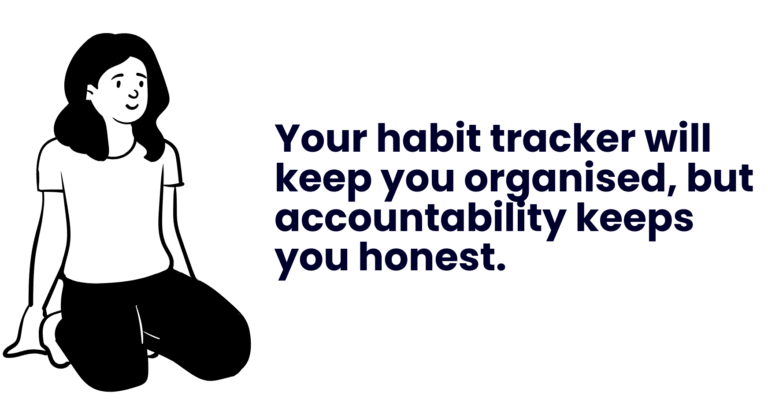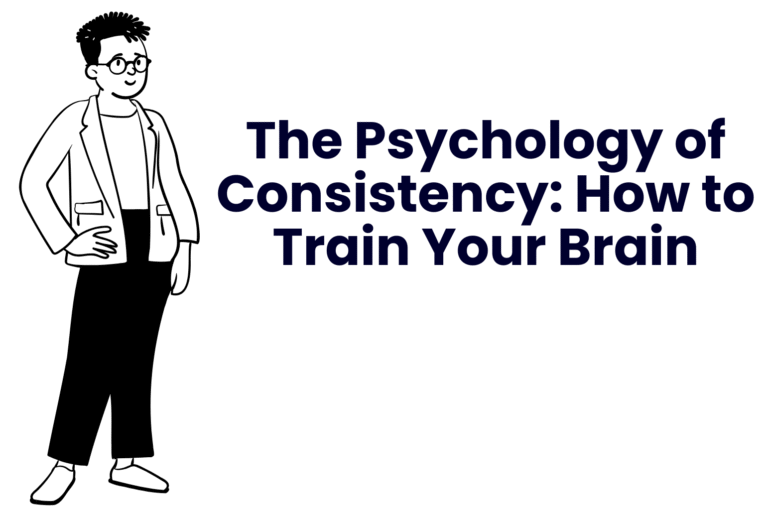The Role Of Accountability In Forming New Habits
Have you ever made a New Year’s resolution and then given up by February? You’re not alone.
Data reveals that 80% of people quit before the second month.
But what if I told you there was a way to drastically improve your hitratio?
The secret isn’t so much willpower — it’s accountability.

In this guide, we will cover:
- Why accountability is effective (science factored in)
- Illustrations of real-life individuals who changed their habits
- Actionable tactics to keep you moving forward (even if you’ve failed before)
- Pitfalls (and preventions)
Let’s get started.
Most People Fails at Habit Building.
Why Most People Struggle with Habit Formation (And How Accountability Can Change This)
We’ve all been there — charging out of the starting gate, only to taper off over time.
The problem? Habits are not made in a vacuum.
Neuroscientists have determined that habits are built using a three-step loop:
Cue (Trigger) → 2. Routine (Action) → 3. You start with Reward (Positive Reinforcement)

But here’s the twist: Most people fall off before the habit takes hold without accountability.
3 ways accountability helps keep you on track

- It changes “Should Do” To “Must Do”
When you tell someone, “I’m hitting the gym every Monday, Wednesday and Friday,” missing a workout feels like a betrayal.
For example: Sarah had wanted to write a book, but was always procrastinating. She joined a weekly writer’s group in which members posted updates on their progress. The pages were expected of her and that drove her to finish her novel in 6 months.
2. It acts an external motivator
Willpower fades. But when you have someone rooting for you (or checking in), you’re more likely to push through those feelings of resistance.
For example: Until Adiytya found Accompli, a habit-tracking app that rewards consistency, he struggled to meditate daily. The gamification kept him coming back in.”
3. Accountability creates consequences
Nobody likes to lose money or face embarrassment if they don’t do the habit.
For example, a Stanford study found that people who had put money if they don’t complete goals were 3x more likely to reach their goals.

Real World Examples: Accountability in Action
Case Study #1: The $25 Gym Pact
Two buddies, Mike and Prash, had a little bet: Whoever skipped a workout had to pay the other one $25.
Result? Neither of them missed a single session over 2 months.
Case Study #2: The 75 Day Hard Challenge
A viral fitness challenge asks participants to:
- Work out twice daily
- Drink a gallon of water
- Post daily progress photos
- Track everything in habits app
Why it worked for thousands of people: The public commitment (and fear of quitting publicly)
Common Mistakes while using accountability in building habits (And How to Fix Them)
Mistake #1: Choosing the Wrong Accountability Partner
- Problem here: Picking someone who’s too lenient (or too harsh). Use reddit or accompli to find partners.
- Fix for this: Get someone with similar goals who’s serious but supportive.
Mistake #2: Not Tracking Progress
- Problem here: “I’ll just remember my progress” → Actually you won’t even remember after one week.
- Fix for this: Use a simple habit tracker to track each habit every day (Accompli, Notion, or a journal).
Mistake #3: Going too big on Goals too fast
- Problem here: “I’ll work out 7 days a week!” → Burnout by Week 2 or 3.
- Fix for this: Start small (2-3 times/week) and move up gradually.
Frequently asked questions around role of accountability
Q1: What if I don’t have anyone to hold me accountable?
A: Use mobile apps (like Accompli) or join online communities (Reddit, Facebook groups) to find accountability partners.
Q2: How often should I check in with my accountability partner?
A: Weekly is ideal—enough to stay on track without feeling micromanaged.
Q3: Does public accountability (like social media) really work?
A: Yes! Posting progress creates positive pressure—just don’t overdo it.
Q4: Can I use accountability for small habits?
A: Absolutely. Even tiny habits (“Drink one glass of water in the morning”) benefit from tracking.
Final Step: Your Action Plan
- Pick ONE habit to focus on (don’t overwhelm yourself with too many)
- Choose an accountability method (partner, app, or public challenge)
- Schedule check-ins (weekly works best).
- Celebrate small wins (reinforces the habit loop). Reward yourself.

Remember: The goal isn’t perfection—it’s progress.






